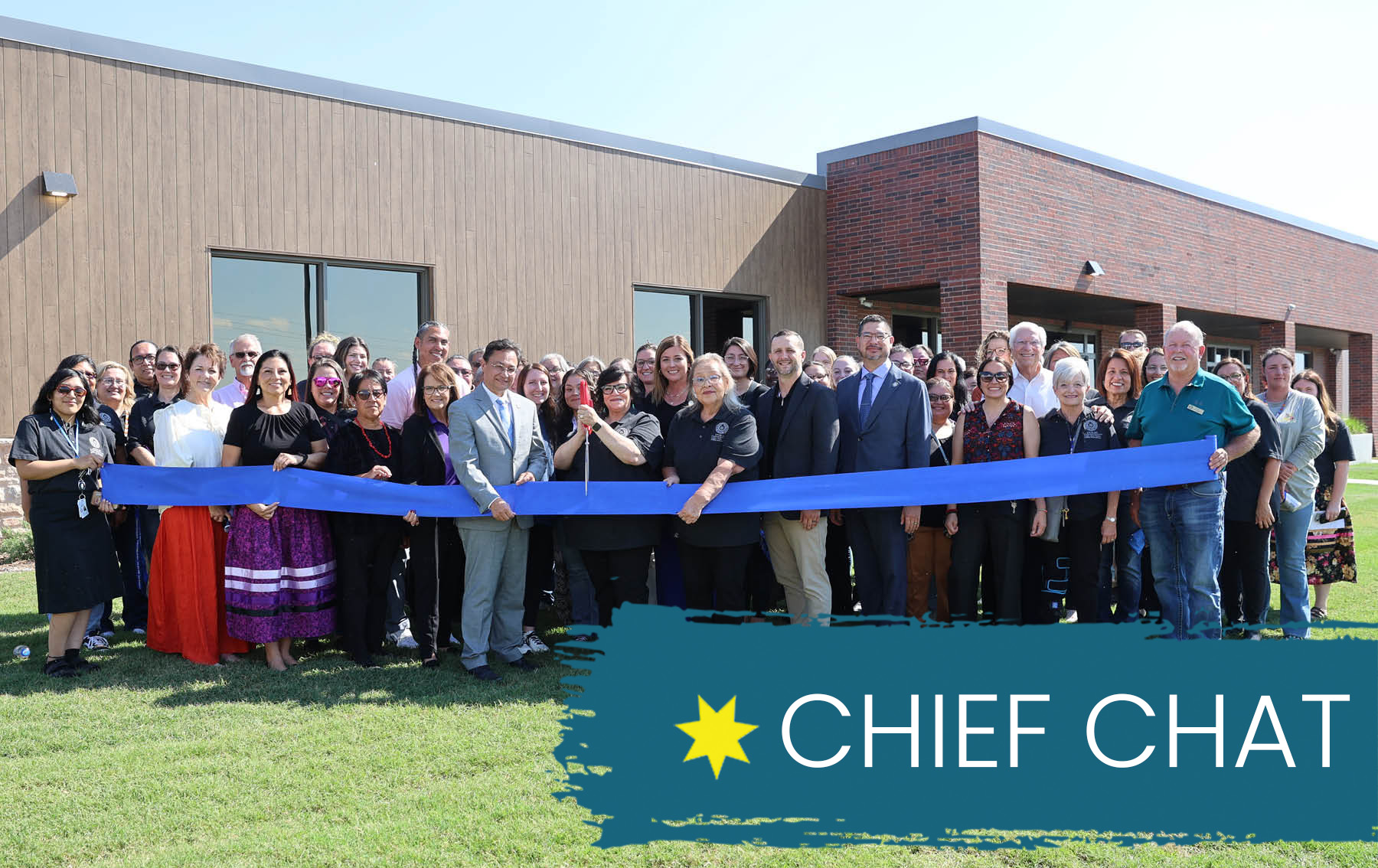Osiyo,
Cherokee Nation remains deeply committed to protecting our culture, preserving our history and strengthening families for future generations. Across our reservation in northeast Oklahoma, we see both the resilience of Cherokee people and the challenges that still persist from generations of historical trauma. Among the most vulnerable are our children, who depend on us so that they feel supported and safe.
That is why the recent dedication and ribbon cutting at our new Indian Child Welfare headquarters marks such an important milestone for our Nation. For too long, this critical team of just over 100 dedicated professionals has carried out sacred work in spaces that were never built for it — offices too small for private conversations, too limited for safe family visitations, and without room for meaningful cultural programming. Yet, even in those conditions, they’ve continued to respond to thousands of monthly notifications and care for more than a thousand children at any given time, guiding families through adoptions, fostering and healing.
The work of Cherokee Nation’s ICW department restores hope, reunites families, and ensures that Cherokee children remain connected to their tribe.
The new Tahlequah ICW facility is more than just an office building: It’s both a symbol of our sovereignty and a place filled with compassion. It will be a site where staff can collaborate closely, where caseworkers and therapists can meet face to face with families in comfort and privacy, and where children can play, learn and heal surrounded by reminders about what it means to be Cherokee.
It gives our team the space to carry out their vital mission with dignity and provides families a welcoming environment when they need it most. With more room and resources, our team can strengthen both their outreach and services — from prevention and reunification to foster support. When Cherokee citizens walk through its doors, they will see themselves reflected back — through art, language and a sense of belonging.
Yes, this expansion helps with the demand, but it is also an important act of self-determination. For generations, others decided what was best for our children. Today, we own that duty. It’s sacred, and we know that there isn’t an investment more important than nurturing the next generation. These are values that reflect who we are as Cherokee people.
We owe this to our elders who endured broken cycles and to our children who deserve a future of belonging. Together, we are building more than new offices — we are creating a sanctuary of hope and healing.
Learn more about becoming a foster or adoptive parent by visiting the Indian Child Welfare website at icw.cherokee.org, calling 918-458-6900, or emailing
Wado,
Chuck Hoskin Jr.
Principal Chief


